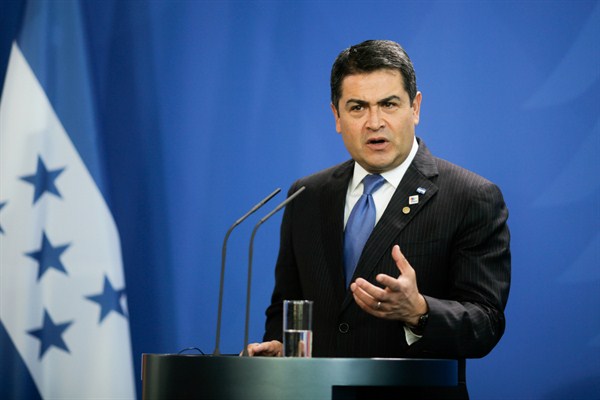After months of anti-corruption protests, Honduran President Juan Orlando Hernandez recently announced an agreement with the Organization of American States (OAS) to create an anti-graft body, the Mission to Support the Fight Against Corruption and Impunity in Honduras, known as the MACCIH. A similar, U.N.-led initiative next door in Guatemala, the International Commission Against Impunity in Guatemala (CICIG), strengthened the rule of law, helped to root out corruption and brought down Guatemalan President Otto Perez Molina. Yet despite those relative successes, observers should temper their expectations that the MACCIH will have any meaningful impact on corruption and impunity in Honduras.
Revelations that an elaborate kickback scheme involving the creation of shell companies that had robbed the Honduran Social Security Institute (IHSS) of more than $300 million earlier this year resulted in mass protests in the capital, Tegucigalpa, and elsewhere in the country. Documents provided by a local journalist, David Romero, also revealed that members of the governing National Party directly benefited from that corruption. Some of those funds found their way into Hernandez’s 2013 election campaign, which he admitted when confronted with evidence. But he denies that he had knowledge of the scheme.
More importantly, thousands of Hondurans were unable to get medicine and life-saving medical care as a result of the graft. Estimates of deaths range from a few dozen to several thousand. The protesters, collectively referred to as the Indignados—the outraged—took to the streets to demand Hernandez’s resignation and the creation of an international anti-corruption body based on the CICIG. In late September, the government appeared to concede to their demands and to international pressure for such an instrument, announcing the creation of the MACCIH. There is little reason to believe, however, that it will deliver any meaningful results.

